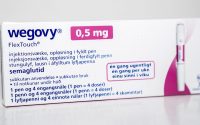Painkiller warning: Overuse is known to cause serious inflammation of the liver – signs
This Morning: Dr Helen gives advice on mixing painkillers
We use your sign-up to provide content in ways you’ve consented to and to improve our understanding of you. This may include adverts from us and 3rd parties based on our understanding. You can unsubscribe at any time. More info
When you follow the instructions on painkillers and other pill-bottle labels, it’s helpful and safe, and it generally doesn’t upset the stomach or liver. But if you take too much and in extreme cases, it can cause liver failure or toxic hepatitis.
Toxic hepatitis is an inflammation of your liver in reaction to certain substances to which you’re exposed.
The condition can be caused by alcohol, chemicals, drugs or nutritional supplements.
The symptoms of toxic hepatitis often go away when exposed to the toxin stops.
But toxic hepatitis can permanently damage your liver, leading to irreversible scarring of liver tissue (cirrhosis) and in some cases liver failure, which can be life-threatening.

Many different drugs can cause drug-induced hepatitis.
Painkillers and fever reducers that contain acetaminophen are a common cause of liver injury, particularly when taken in doses greater than those recommended.
But toxic hepatitis can permanently damage your liver, leading to irreversible scarring of liver tissue (cirrhosis) and in some cases liver failure, which can be life-threatening.
Acetaminophen is the major metabolite of acetanilid and phenacetin, which were once commonly used drugs, and is responsible for their analgesic (pain-relieving) effects.
“Drug-induced hepatitis is a redness and swelling (inflammation) of the liver that is caused by a harmful (toxic) amount of certain medicines,” said John Hopkins Medicine.
The health site added: “The liver helps to break down certain medicines in your blood. If there is too much medicine in your blood for your liver to break down, your liver can become badly damaged.
Hepatitis is inflammation of the liver.
Toxic hepatitis refers to inflammation of the liver due to medication or exposure to toxic chemicals.

Those at greater risk of hepatitis include those who:
- Have liver disease, such as from long-term alcohol use, HIV, or viral hepatitis
- Drink alcohol and take medicines at the same time
- Are older
- Are a woman
- Use long-acting or extended release medicines
- Take multiple medicines that contain acetaminophen or paracetamol
- Use herbal supplements.
According to Mayo Clinic, symptoms of toxic hepatitis include:
- Yellowing of the skin and whites of the eyes (jaundice)
- Itching
- Abdominal pain in the upper right portion of the abdomen
- Fatigue
- Loss of appetite
- Nausea and vomiting
- Rash
- Fever
- Weight loss
- Dark or tea-coloured urine.
Source: Read Full Article


